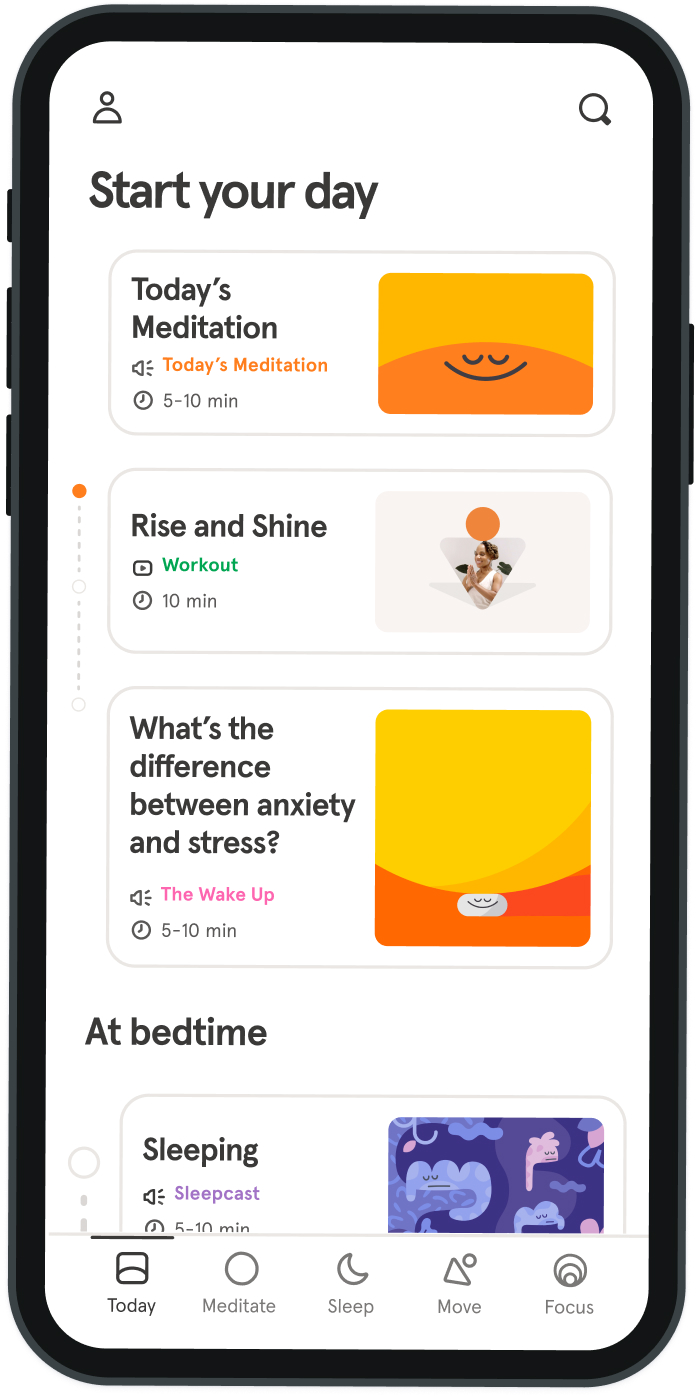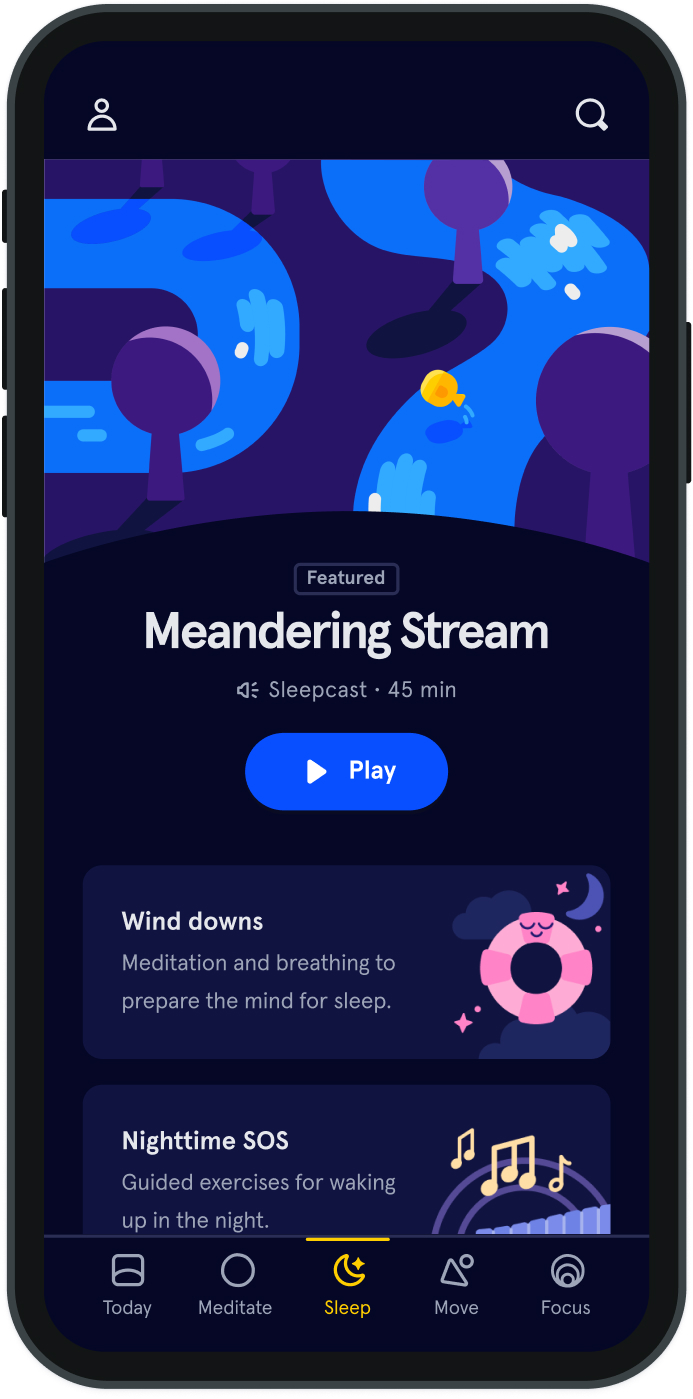How I used mindfulness during my difficult pregnancy
For some women, pregnancy is a time of enchanted anticipation, glowing cheekbones, and the most adorable cravings (hot wings dipped in guacamole, anyone?). For me—and many other pregnant women I’ve encountered—pregnancy can be downright miserable.
I’m currently expecting my third child, and between the mind-boggling nausea and extreme fatigue, each day I’ve wondered how I’ll survive until bedtime. I’m busy keeping two other humans alive (my sons, almost four and almost two, respectively) as well as maintaining a freelance career and managing our home. Like me, most women cannot simply check out for the nine grueling months it takes to grow a human—we all have duties: work, school, other children, not to mention all the other responsibilities of being an adult. According to the U.S. Census Bureau, over half of all American women between the ages of 15 and 50 have experienced the grueling process of pregnancy and birth. Online message boards and parenting blogs share stories of expectant mothers muddling through the discomfort and desperation unique to each trimester. The most common question I receive throughout this physically demanding time isn’t whether I’m having a boy or girl, but rather how I’m feeling. I’m afraid my answer isn’t always what friends want to hear. I feel wretched, to say the least.
Cue the spotlight on mindfulness. When nausea or aching ligaments can’t be alleviated with medication, or I can’t get away for a much-needed nap, or even just get through the morning without eight trips to the restroom, I try to dwell less on my misery and choose to be mindful instead. Here are four tips for using mindfulness to help ease the discomforts and hardships of pregnancy:
1. Consider your overall physical wellness beyond immediate pain
The very nature of pregnancy is a hellstorm on the body. The hormonal changes can cause countless effects, compounded by increasing weight and decreasing energy. It’s easy to feel bogged down by the changes, but we may find relief by choosing acceptance. For me, nausea during the first trimester was a cruel companion. Instead of only focusing on my upset stomach, I try to accept it as beyond my control and also focus on what I can control to seek relief. Sometimes, this meant middle of the night snacking; other times, just sitting in the afternoon sunshine for a few minutes would give me the energy I needed to make it to dinnertime. Other options may include walking to ease pressure on your aching back, or remembering that swelling and Braxton-Hicks contractions can decrease when we take care to hydrate. Rather than only focusing on your suffering, see if you can also consider the ways in which you can ensure more ease.
2. Take breaks/Modify wherever possible
This one goes hand in hand with staying tuned into your physical wellness. Many women feel guilty for taking breaks, but pregnancy is a time to slow down, to breathe deeply and practice self-care. Nap if you can do so during your lunch hour, use paper plates if dishes are just too much that day, and give yourself permission to take things at a pace you can handle. I’m usually pretty particular about household chores, but during difficult days I’ve opted for sanity and relaxation over routine. Taking breaks is an act of (productive) mindfulness too.
3. Conquer smaller moments, rather than entire days
As a full-time caregiver to my children, my days seem both hectic and extremely long—I often count the hours and minutes until I can tuck my boys into bed and collapse on the sofa myself. But counting the hours does nothing but foster anxiety and discouragement. Even with pregnancy ailments ablaze, I’ve become more aware of present moments. I breathe in the scent of a freshly washed toddler’s hair or sip my coffee quietly as my family eats breakfast at the table, I notice present moments and reject anticipatory thought patterns about the future. Practicing mindfulness has taken the focus off of my longer-term suffering and placed it directly where it should be: here and now.
4. Choose gratitude
I’ll be the first to admit that not every moment of this pregnancy has been filled with gratitude. As I’ve entered my second trimester and my symptoms have evolved, I’ve learned to catch myself when I feel like complaining and to shift my thinking toward the privileges of pregnancy. Rather than voice each grievance, I consider a way I can be thankful for this unborn child and the family he or she will be born into. While complaining and unloading feels nice on occasion, building mindful gratitude practices continues to be one of my best defenses against a long and often unforgiving nine months. Not that I’m counting or anything.



Be kind to your mind
- Access the full library of 500+ meditations on everything from stress, to resilience, to compassion
- Put your mind to bed with sleep sounds, music, and wind-down exercises
- Make mindfulness a part of your daily routine with tension-releasing workouts, relaxing yoga, Focus music playlists, and more
Meditation and mindfulness for any mind, any mood, any goal

Stay in the loop
Be the first to get updates on our latest content, special offers, and new features.
By signing up, you’re agreeing to receive marketing emails from Headspace. You can unsubscribe at any time. For more details, check out our Privacy Policy.
- © 2025 Headspace Inc.
- Terms & conditions
- Privacy policy
- Consumer Health Data
- Your privacy choices
- CA Privacy Notice
